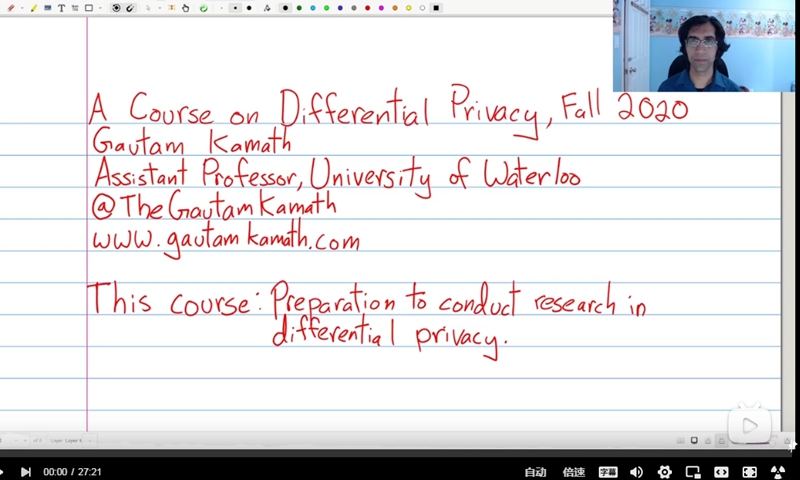ARTS / CULTURE & LEISURE
Canadian educator gains following in China after posting online course to Chinese video sharing site Bilibili

Photo: Screenshot of Kamath’s course video uploaded on Bilibili
Gautam Kamath, assistant professor at the University of Waterloo in Canada, began sharing his 24-hour computer science video course on Bilibili, a popular Chinese video sharing platform embraced by young Chinese, on January 3.
His account on the site quickly acquired more than 1,000 followers in just a few hours.
In the week following the upload, the number of followers to his account has increased tenfold as young users on Bilibili embraced Kamath and his courses with an open and grateful attitude.
Some young users, who are majoring in computer science, thanked the assistant professor in comments, noting that the videos have helped them sharpen their skills.
Although some messages under the videos were in Chinese and some in English, a friendly attitude and desire for knowledge shown from them all.
“I am lucky to have interacted with many very smart young Chinese people during my academic career so far, including many alumni of Tsinghua and Peking University. I currently work with one very talented Chinese undergrad at the University of Waterloo. All of these people are very smart, dedicated, creative, and hardworking. They place high value on education and knowledge, which I also consider to be very important,” Kamath told the Global Times.
The core of the course uploaded to Bilibili is differential privacy, which is a mathematically rigorous way of protecting individual privacy in data analysis, and has recently seen significant use in applications involving statistics and machine learning.
Kamath admitted that the subject is complicated and difficult to understand. To best understand the material, one needs an understanding of algorithm design usually obtained from an undergraduate degree in computer science, as well as a good understanding and comfort with probability. But the most important requirement is maturity and self-motivation, he noted.
The video course has received a total of 30,000 views as of Monday.
Inspired by the trend toward online education amid the COVID-19 pandemic, Kamath decided to share his course on video platforms such as YouTube.
However, he never thought about uploading to a Chinese site until he saw some videos from Ryan O'Donnell, a professor at the Carnegie Mellon University in US.
O’Donnell had actually created a Bilibili account on January 3 as well, just slightly earlier than Kamath, and had also uploaded his course on computer science. O’Donnell told the Global Times that he wants to put more videos on the platform to see how things go.
The two educators have promoted their videos on Bilibili on Twitter.
Language has posed somewhat of a barrier for Kamath as he says he is slowly learning Chinese using an app, though he says his current level is probably comparable to a 2-year old.
He seemed to have grasped some “code words” among users on the video site such as suzhi sanlian, which refers to giving a video a thumbs-up, donating virtual currency and buying more of this currency.

